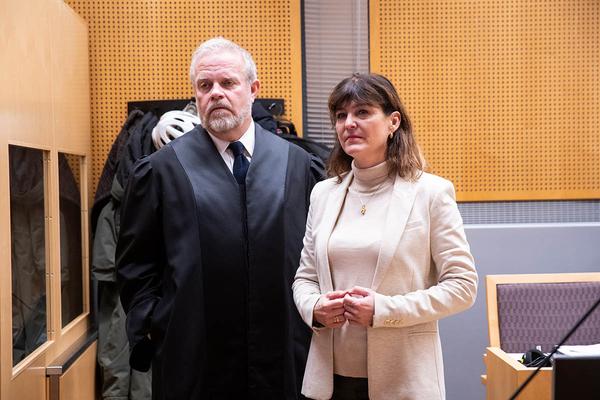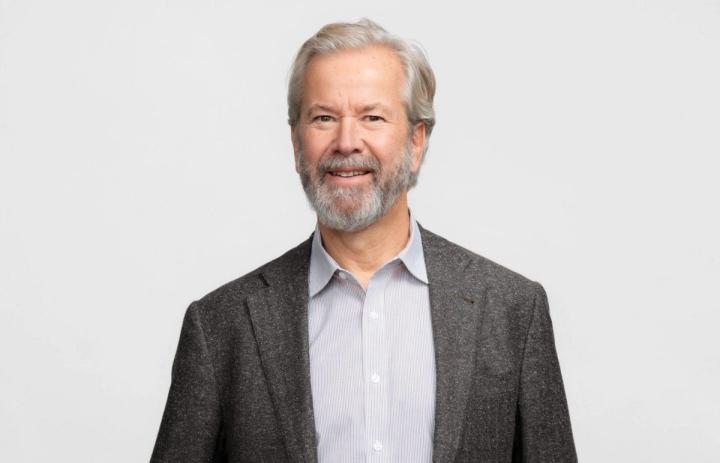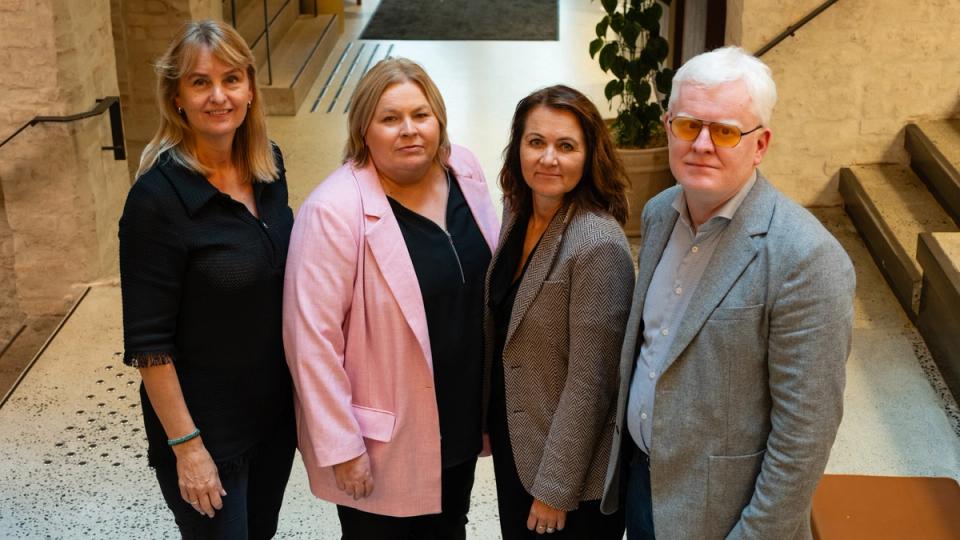9. desember 2020
Gen Z values journalism

By HANSINE KORSLIEN, Head of communications, Tinius Trust. Generation Z creates what they consume and consumes what they create. But, according […]
By HANSINE KORSLIEN, Head of communications, Tinius Trust.
Generation Z creates what they consume and consumes what they create. But, according to a report from Tinius Trust, their approach to news is different. When consuming digital information, peers’ content is replaced by the work of journalists.
This article is published in The Future Report 2021 by Schibsted Media Group. The report offer insights on some of the profound changes and trends in people’s daily lives.
There are many truths circulating about Generation Z. According to the news publication Quartz, they are concerned with the environment, sustainability and gender identity. They are the primary creators of the content they consume. They are online “almost constantly” and social media binds them together globally. But the new report reveals that Generation Z in Norway and Sweden has habits that differ from global truths, when it comes to getting updated digitally.
64 percent of the report’s respondents in Norway and 53 percent in Sweden say that they go directly to national media to keep updated digitally. National media is the most popular source to keep updated in Norway, and the third most popular in Sweden. According to Reuters Institute, globally only 16 percent of those aged 18–24 prefer to start their digital search for news with a news website or app.
The report from Tinius Trust is based on surveys conducted by the research company Norstat and it covers the digital information habits of Generation Z (born 1995 – 2005) in Norway and Sweden.
The results indicate that the strong, direct relationship between Generation Z and the media is a result of trust. It shows that 73 percent of respondents in Norway and 54 percent in Sweden trust that news media or journalists provide trustworthy updates digitally. Furthermore, 74 percent in Norway and 64 percent in Sweden agree with the statement “I like that information I find digitally is fact-checked by a journalist”.
The scores are a little lower in Sweden. Some Swedes seem skeptical of a one-angle approach to digital news. The report shows a 21-percentage-point gap between the respondents use of search engines in Norway and Sweden, making search the most popular source to keep updated in Sweden. The youngest group (aged 15–20) in Sweden use social media just as much as search (61 percent) and find blogs more useful (10 percent) than other respondents. They emphasize the value of receiving authentic stories directly from sources.
Strong media brands are valued by Generation Z. The report shows that 30 percent believe it is very important that news they consume digitally comes from a well-known brand. Still, they do not recognize specific journalists.
When asked to name a journalist, blogger or person to trust when consuming digital information, journalist Fredrik Solvang is mentioned by 18 respondents in Norway, and blogger Therése Lindgren by 15 respondents in Sweden – these are the two most mentioned names by over a thousand respondents in each country.
Generation Z has never experienced a life without smartphones. They are used to having a number of options available digitally and so, it is no surprise that they also crave options when consuming information digitally.
Language preferences are one such an example. In the report half of the respondents prefer their official language when they consume digital information. Still, 38 percent in Norway and 36 percent in Sweden don’t care whether the language is Norwegian, Swedish or English. When speaking to respondents in smaller focus groups, some argue that media should offer English articles to those who don’t speak the official language and ensure access to news for all.
Length is another example, although the shorter the better. 71 percent in Norway and 56 percent in Sweden agree with the statement “I like that digital information is short and explained rapidly”. Yet, 36 percent in Norway and 35 percent in Sweden agree with the statement “I like that digital information is thoroughly explained and takes time to consume”. In the focus groups some argue that media should write short summaries with the option to “read more”.
The favorite format of the respondents in the Tinius Trust report is to read a text. However, 38 percent in Norway and 31 percent in Sweden prefer a combination of text, video and sound when they consume digital information. The youngest group (aged 15–20) is more positive towards the use of video. Only a few percent prefer a sound file or podcast.
Also, Generation Z is not so eager to interact digitally with news content. 77 percent in Norway and 65 percent in Sweden disagree with the statement “I like to publish text, video or sound files based on information I find digitally”. 42 percent in Norway and 38 percent in Sweden disagree with the statement “I enjoy to like, share or comment on information I find digitally”. In the focus groups, respondents say they prefer objective news. A 19-year old man says: “If I look up information from a serious source and random persons could interfere and state their own opinions, it would disrupt the core of why I chose a serious source to begin with”.
The relationship between Generation Z and the media is largely run without a paid subscription. According to Reuters Institute, 19 percent of those aged 18–24 pay for digital news globally. The report shows that 15 percent in Sweden and 20 percent in Norway pay for digital news. More respondents pay for music, video/movies and games digitally today, than for digital news. In the future, news exceeds games. Twice as many, 34 percent in Sweden and 40 percent in Norway, believe they will pay for digital news in the future.
Some respondents in the focus groups frequently argued that news is a right and consequently it must be free and available to all.
Eight out of ten respondents who are not willing for pay for digital news say it is because they find digital information for free. A 17-year-old woman says: “To pay for news is unnecessary. You will find the right information if something significant takes place, and that information will be available for everyone”. In the focus group they also underline that while news is everywhere, entertainment is offered exclusively to subscribers. So, if digital news becomes just as limited, these opinions may change.
Based on the report from the Tinius Trust, there is at least one new truth about Generation Z in Norway and Sweden that should be carried along into the future: they value journalism. And now it’s up to media businesses to turn that belief into subscriptions.



